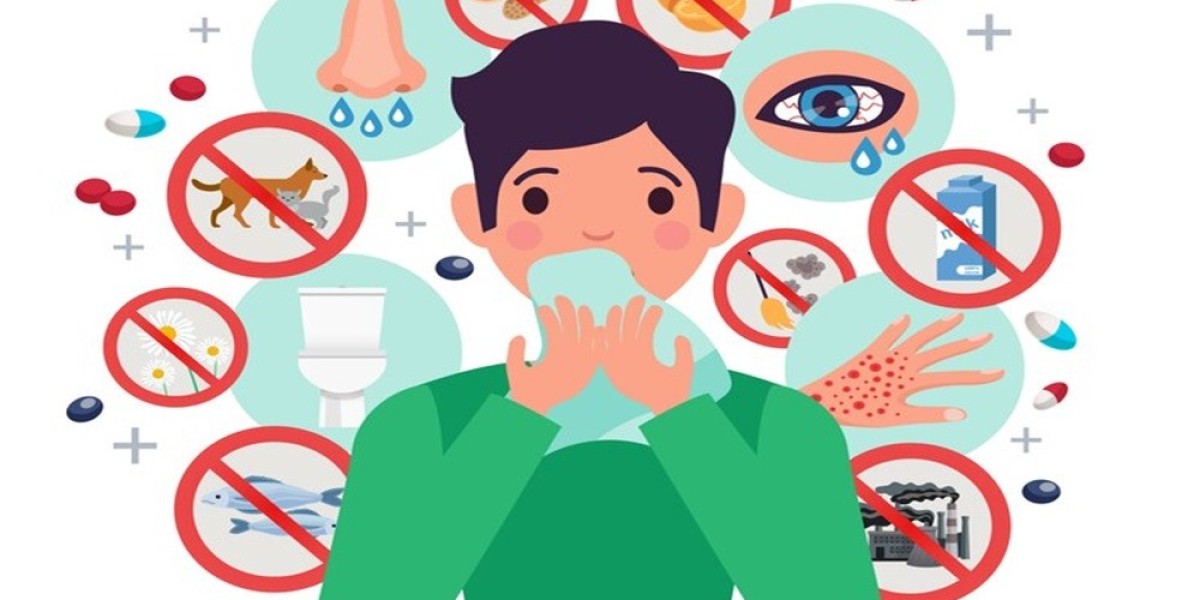Allergies are a common health concern affecting millions of people worldwide. Whether it's seasonal allergies, food allergies, or allergic reactions to environmental triggers, the symptoms can range from mild discomfort to severe reactions that impact daily life. While conventional treatments such as antihistamines and corticosteroids are commonly used to manage allergies, many individuals are turning to alternative therapies like homeopathy for relief. In this article, we'll delve into how homeopathic medicine can help alleviate allergy symptoms and promote overall well-being.
Understanding Allergies and Their Symptoms
Before exploring how homeopathic medicine can help with allergies, it's essential to understand the nature of allergies and their symptoms. Allergies occur when the immune system overreacts to substances that are typically harmless, known as allergens. Pollen, dust mites, pet dander, certain foods, and insect stings are examples of common allergens. When exposed to an allergen, the immune system releases histamines and other chemicals, leading to symptoms such as:
● Sneezing
● Runny or congested nose
● Itchy or watery eyes
● Skin rash or hives
● Digestive issues
● Difficulty breathing or wheezing
The Homeopathic Approach to Allergy Treatment
Homeopathy is a holistic system of medicine based on the principle of "like cures like." According to this principle, a substance that can produce symptoms similar to those of a disease in a healthy person can be used to treat those symptoms in a sick person. They work by stimulating the body's self-healing mechanisms and restoring balance to the system, rather than suppressing symptoms.
Individualized Treatment Based on Symptoms
One of the key principles of homeopathy is individualized treatment. Homeopathic remedies are selected based on the unique symptoms and characteristics of each individual, rather than a one-size-fits-all approach. During a homeopathic consultation, the practitioner will assess the patient's symptoms, medical history, and overall health to determine the most appropriate remedy. By addressing the underlying imbalances that contribute to allergy symptoms, homeopathy aims to provide long-lasting relief and improve overall well-being.
Common Homeopathic Remedies for Allergies
Several homeopathic remedies are commonly used to treat allergy symptoms, each targeting specific symptoms and underlying causes. Some of the most frequently prescribed remedies for allergies include:
● Allium cepa: Indicated for allergies with symptoms such as watery eyes, a runny nose with burning discharge, and frequent sneezing.
● Arsenicum album: Recommended for allergies with symptoms such as burning and itching of the eyes and nose, as well as restlessness and anxiety.
● Natrum muriaticum: Indicated for allergies with symptoms such as watery discharge from the nose, sneezing, and sensitivity to sunlight.
● Euphrasia: Recommended for allergies with symptoms such as profuse, acrid tearing from the eyes, and bland nasal discharge.
These remedies, along with many others, are selected based on the specific symptoms experienced by the individual, providing targeted relief and promoting overall balance in the body.
Holistic Approach to Allergy Management
In addition to addressing allergy symptoms, homeopathy takes a holistic approach to health and wellness, considering the physical, mental, and emotional aspects of the individual. Homeopathic practitioners may recommend lifestyle modifications, dietary changes, and stress-reduction techniques to support overall well-being and enhance the body's ability to heal itself. By addressing underlying imbalances and promoting overall health, homeopathy aims to reduce the frequency and severity of allergy symptoms and improve quality of life.
Consultation with a Qualified Practitioner
While homeopathic remedies are available over the counter, it's essential to consult with a qualified homeopathic practitioner for personalized treatment. A professional assessment ensures that the chosen remedy is appropriate for the individual's specific symptoms and health status. Additionally, a qualified practitioner can provide guidance on dosage, frequency of use, and potential interactions with other medications or treatments.
Conclusion
Homeopathic medicine offers a gentle and effective approach to managing allergy symptoms and promoting overall well-being. By addressing the underlying imbalances that contribute to allergies and individualizing treatment based on the unique symptoms of each individual, homeopathy aims to provide long-lasting relief and support optimal health. If you're struggling with allergies and seeking a natural and holistic approach to treatment, consider consulting with a qualified homeopathic practitioner to explore personalized treatment options tailored to your needs.
Book an appointment now: https://www.dharmahomoeo.com/book-appointment/
Source: https://bresdel.com/blogs/440541/How-Can-Homeopathic-Medicine-Help-with-Allergies








